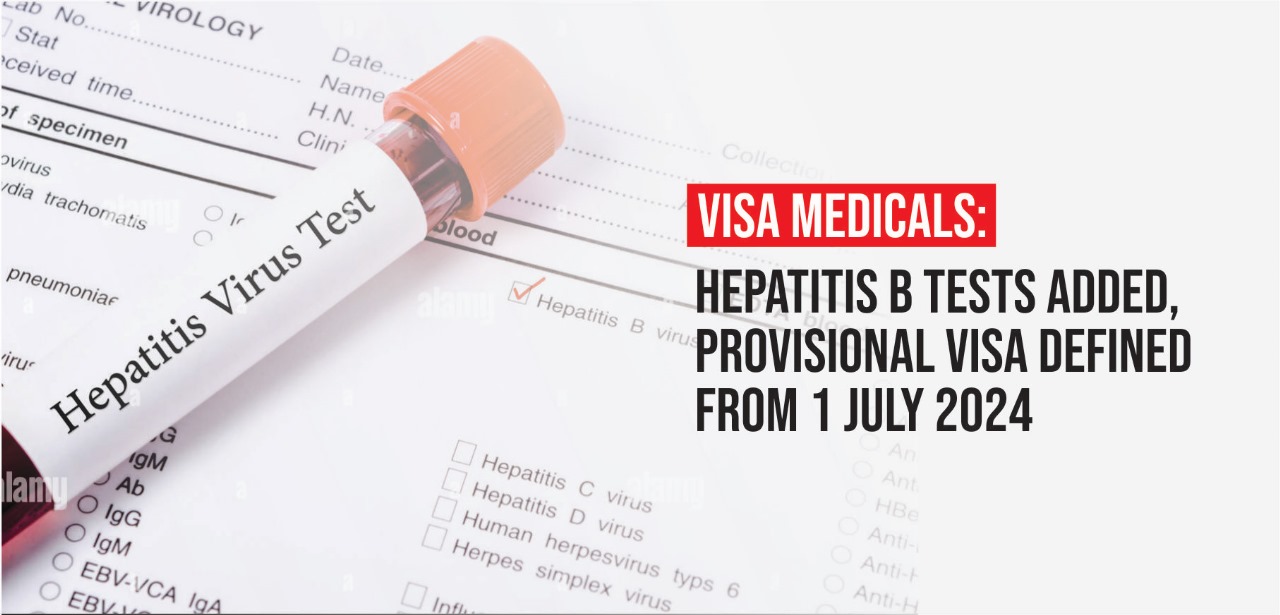Starting July 1, 2024, significant changes are set to impact visa applicants to Australia, particularly concerning visa medicals and provisional visas. These changes, outlined under the revised public interest criteria (PIC) 4005 and 4007, underscore Australia’s stringent health requirements for incoming migrants.
Under the amended regulations, most visa applicants will be required to undergo a visa medical examination as part of their migration process, barring only those from low-risk countries holding temporary visas. The rationale behind this requirement is rooted in PIC 4005 and 4007, which mandate that specified visa classes must meet certain health criteria unless otherwise waived by a designated Medical Officer of the Commonwealth.
Notably, the health requirement spans across nearly all Australian visa categories, save for a few exceptions such as the Resident Return visas (subclass 155 and 157), Maritime Crew visas (subclass 988), Diplomatic Temporary visas (subclass 995), Special Category visas (subclass 444), and Temporary Work International Relations visas (subclass 403) under the Privileges and Immunities stream.
For applicants pursuing permanent or provisional visas, the health assessment extends to non-migrating family members, necessitating a comprehensive evaluation even if they are not direct visa applicants.
The health requirement serves several crucial purposes: to mitigate public health risks, including communicable diseases like tuberculosis, to manage healthcare expenditure, and to safeguard access to limited medical services within the Australian community.
A pivotal aspect of these regulations is the financial impact assessment: visa applications may be denied if the applicant’s health condition is deemed likely to result in significant healthcare costs or if it could potentially hinder an Australian resident’s access to medical services, regardless of whether the applicant intends to use those services.
Temporary visa applicants are assessed based on the projected duration of their stay in Australia, while permanent and provisional visa applicants face evaluations spanning up to ten years if there is a likelihood of long-term health implications.
Distinguishing between PIC 4005 and PIC 4007, the latter provides a health waiver option, allowing for flexibility in certain cases where applicants may otherwise fail the health requirements outright.
Of particular interest is the addition of hepatitis B testing requirements for applicants from high-risk jurisdictions. Those born in countries not listed in Schedule 5, which designates low hepatitis B risk countries, must undergo hepatitis B testing if they are over 15 years old and are applying for a permanent or provisional visa.
Moreover, the amendments clarify the definition of provisional visas, describing them as a critical stage in a two-step pathway toward obtaining permanent residency. While not explicitly defined in the Migration Act 1958 or Migration Regulations 1994, provisional visas are considered temporary visas necessitating the same rigorous health assessments as permanent visas due to the seamless transition between the two stages.
In conclusion, these updates reflect Australia’s commitment to ensuring public health and managing healthcare costs while maintaining equitable access to medical services for its residents. As such, visa applicants, particularly those applying for permanent or provisional visas, are advised to familiarize themselves with these changes to navigate the migration process smoothly and effectively.








